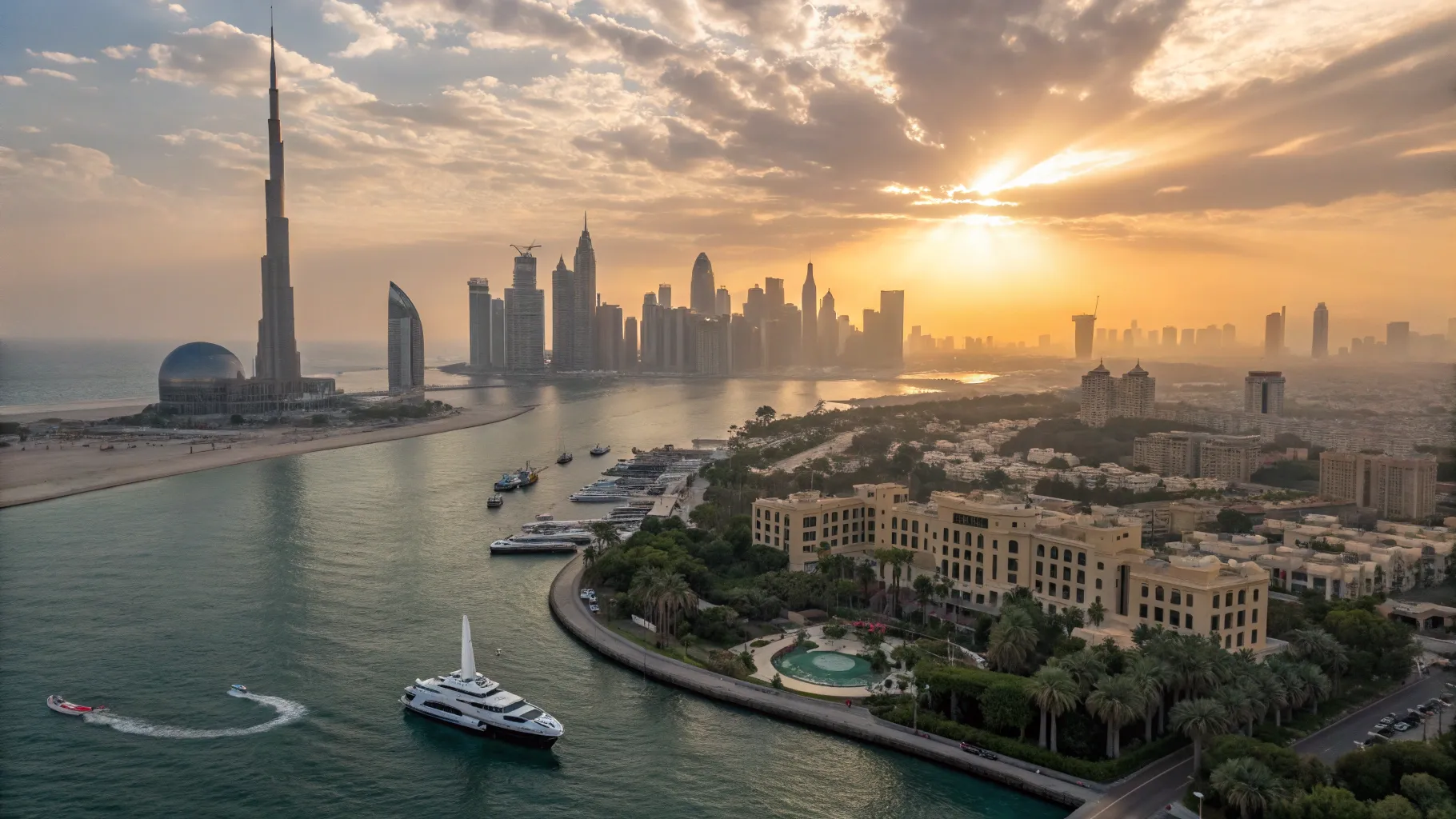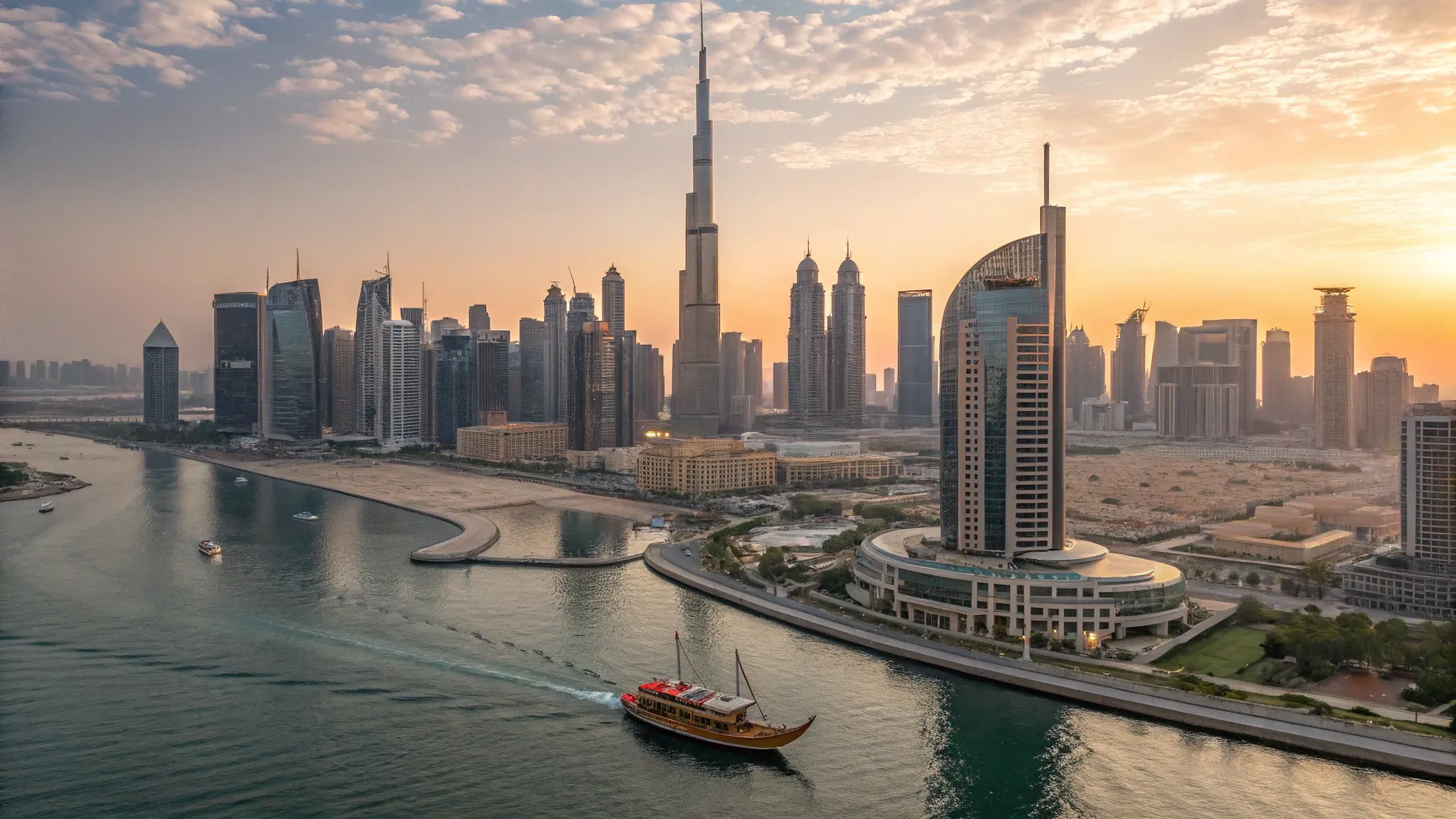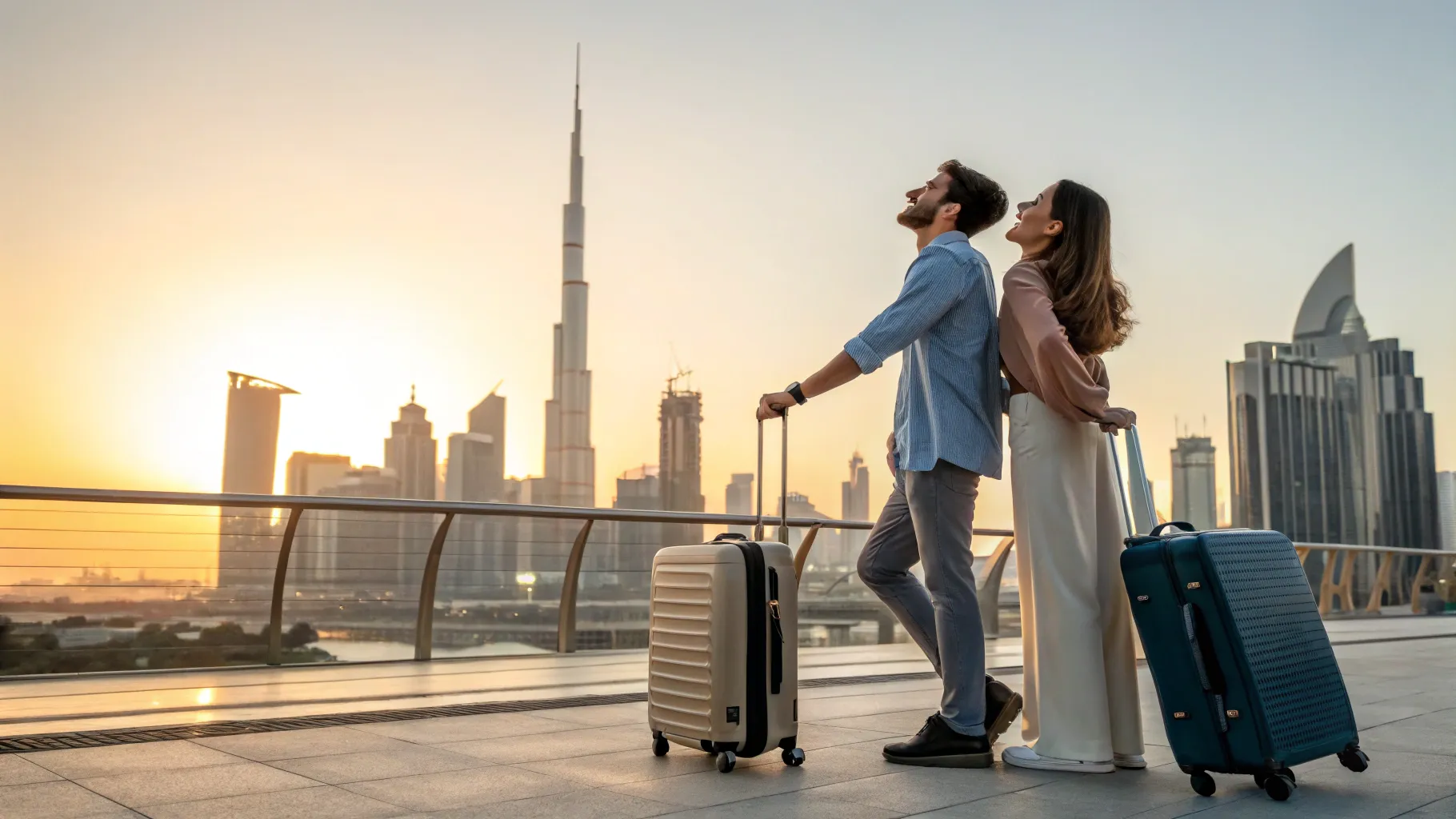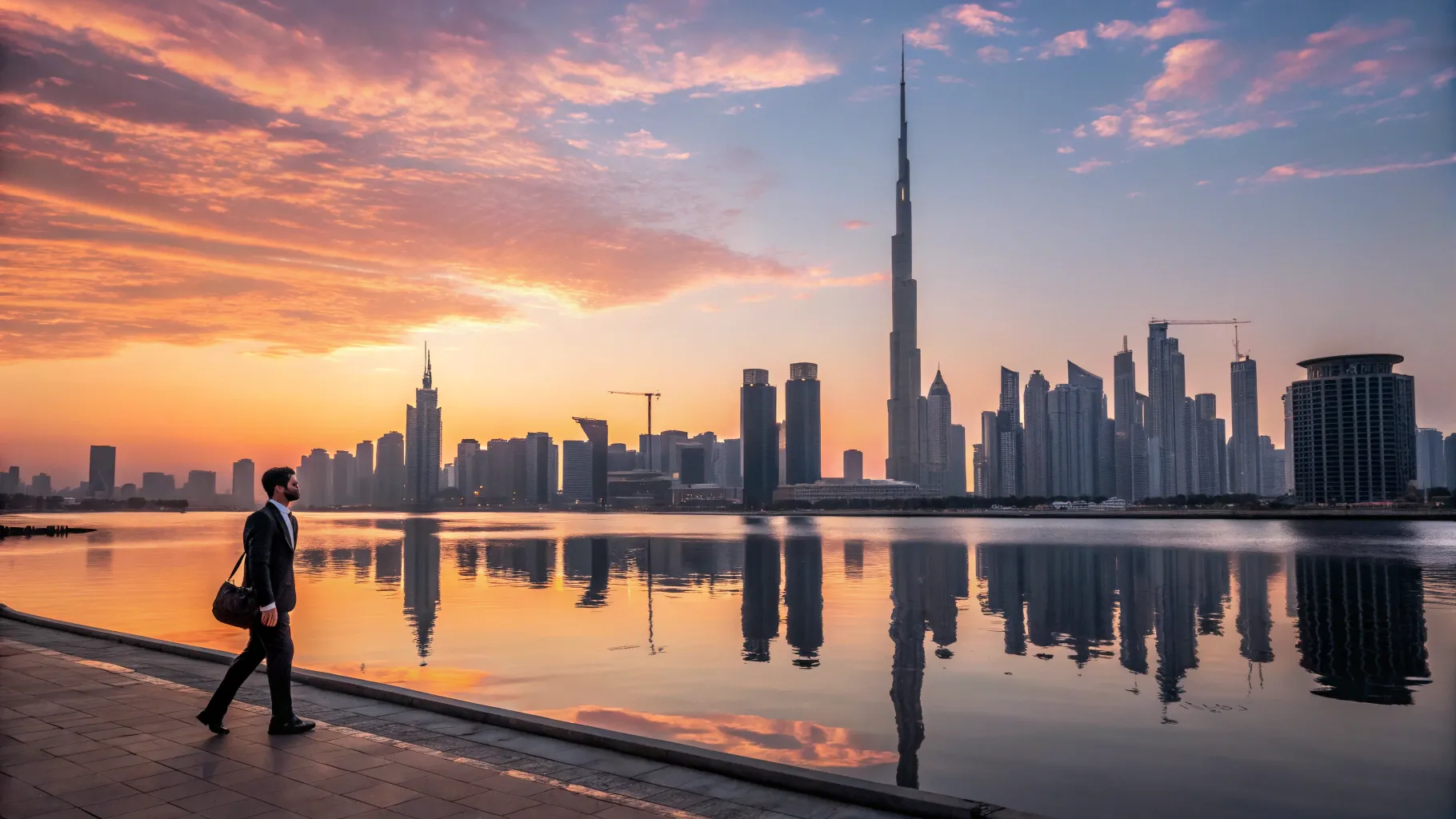- Blog
- how to move to dubai
How to Move to Dubai: The Complete 2026 Relocation Guide

Planning a move to Dubai? Learn about visa types, tax benefits, costs of living, and the step-by-step process for a seamless relocation to the UAE in 2026.
Founder of JustMove
Summarize content with
Get AI-powered insights and summaries of this article
Just Move is the preferred partner of entrepreneurs
Expert in incorporation, accounting and immigration
Trusted by over 500+ entrepreneurs
4.9/5 reviews from our clients
100% satisfaction across all services
Dubai has solidified its position as a premier global business powerhouse and an unparalleled lifestyle destination for the modern visionary. If you are an entrepreneur, freelancer, or investor wondering how to move to dubai in 2026, you are looking at a transition into a highly structured environment. This guide is specifically crafted for business owners and SMEs planning to relocate operations or establish a new presence in the UAE with our comprehensive company formation service.
Relocating internationally can feel overwhelming, but we solve this complexity by breaking down regulatory, financial, and logistical requirements into a clear roadmap. You are not alone; 85% of Dubai's population consists of expats. Statistics indicate that Dubai's total population is 2.8 million, with 7.8 million expats across the wider region, providing a massive network for your website or physical venture.
Whether you are a us citizen looking to move to dubai from us soil or represent us citizens from the usa, you will discover the nuances of moving to dubai and the daily reality of living in dubai. We will explore everything from company formation to the optional steps that ensure a smooth transition. This resource provides the clarity needed for moving to the uae and moving to uae regulatory zones.
Successfully navigating these initial requirements sets the stage for a thriving professional life in the Emirates.
Why Move to Dubai? The Economic and Safety Advantages
Understanding how to move to dubai starts with recognizing its role as a global haven for capital and talent. For many entrepreneurs from the usa, the decision to relocate is driven by the desire to protect their earnings while accessing a dynamic market. Successfully launching a business here allows you to leverage a world-class infrastructure designed for speed and efficiency.
Tax Incentives for Moving to Dubai
Moving to the uae allows you to enjoy an income tax-free lifestyle that is increasingly rare in major global hubs. There is no income tax in Dubai or the UAE for individuals, which means you retain the entirety of your salary or dividends. This offers a significant financial advantage to residents compared to high-tax jurisdictions.
While there is no personal income tax in Dubai, the government maintains a 5% Value Added Tax (VAT) on most goods and services. This balanced approach funds city services while keeping your primary wealth intact. For many us citizens, this transition results in a massive boost to their net savings and investment capacity.
As of 2026, business owners should note that a 9% corporate tax applies to profits exceeding 375,000 AED. For a more detailed understanding of these regulations, refer to our corporate tax guide UAE. However, the Small Business Relief (SBR) works by providing a 0% tax rate to companies with revenue under 3,000,000 AED. You can elect for this relief through the end of the 2026 tax year to maximize your startup's growth.
Safety and Lifestyle for Living in Dubai
Safety remains a cornerstone of the appeal when you move to dubai from us or other Western regions. Dubai is considered one of the world's safest cities with a remarkably low crime rate that ensures peace of mind for families and solo travelers alike.
Social Rights: Dubai is considered one of the safest cities globally, with women having full rights to work, drive, and live independently. Digital Access: You can manage your initial company registration via the Just Move website, making physical visits optional during the early paperwork phase.
Whether you are a us citizen or a European investor, moving to dubai offers an elegant fusion of safety and opportunity. The fourth quarter of the year is a critical time to finalize your move to uae to align with your new business goals. Success in this journey depends heavily on selecting the correct legal framework for your specific operations.
Understanding Visa Requirements and Residency Options
Relocating to the Emirates requires a strategic transition from a visitor status to a formal legal resident. If you are researching how to move to dubai in 2026, you must recognize that your entry permit is merely a temporary window into the market. A UAE residency visa and/or work permit is required for relocation and remains the essential foundation for opening bank accounts or leasing property.
Entry Permits for the Initial Transition
A us citizen can visit Dubai without a visa, requiring only an original US passport valid for at least six months from the expected arrival date. This entry permit typically allows for a 30-day stay, which serves as an ideal timeframe to finalize your physical presence requirements. This short-term access works by granting immediate entry while you coordinate with experts like Just Move to process your permanent documents.
However, us citizens moving to dubai require a residence visa and work permit beyond the initial 30-day entry permit. Moving to the uae requires a clear understanding of the visa process to ensure your stay remains compliant with local laws once that initial window closes. Relying on visitor status for business operations is a significant risk that can lead to fines or deportation.
Long-term Residency Pathways for Entrepreneurs
For those looking at a permanent move to dubai from us, the government offers several specialized tracks. A us citizen can move to dubai by obtaining a renewable visa that allows stays of five or ten years, depending on the visa type, such as the Golden Visa UAE guide for investors and high-level talent. These long-term options provide the stability needed for living in dubai while managing an international business portfolio.
Just Move facilitates this transition through a fully digital process that minimizes your administrative burden. Our team prepares your application so you can complete your medical visit, biometrics, and Emirates ID processing in only one week. While a Remote Work Visa is an optional choice for digital nomads, entrepreneurs usually find that a company-sponsored residency offers more robust local benefits and tax clarity.
Moving to uae jurisdictions involves navigating various regulatory windows that can change annually. We provide real-time updates through our website to ensure our clients are always ahead of new compliance mandates. Securing your residency is not just about the permit itself; it is about establishing the legal right to build a future in one of the world's most competitive markets.
Once your legal residency is secured, your attention must shift toward the specific legal framework that will house your professional activities.
Settling In: Banking, Healthcare, and Housing
When learning how to move to dubai, you must prioritize the logistical foundations of residency. For any us citizen or entrepreneur from the usa, transitioning to a new country requires a clear understanding of local infrastructure. Before you depart, verify your passport is valid for at least six months, as this is a fundamental requirement for all visa processing.
The UAE Healthcare System
Healthcare in the Emirates is world-class, but access depends on mandatory coverage. Employers in the UAE are responsible for providing health insurance coverage for resident expat workers and their dependents. If you are setting up an SME via the Just Move website, you must factor these costs into your recruitment budget for 2026.
Living in Dubai with high-quality medical access ensures peace of mind for your family. Most private hospitals offer premium facilities that feel more like five-star hotels than clinics. These modern facilities often feature large windows and views of the water to enhance the patient experience.
Opening Your Bank Account
Financial integration is a critical step for those moving to the uae. You need your residency visa before you can open a bank account in Dubai, which Just Move helps facilitate within a week of your medical visit. The standard process for us citizens usually follows these steps:
Step 1: Complete your medical check and biometrics. Step 2: Receive your Emirates ID and residency stamping. Step 3: Apply at a local branch with your proof of address.
There are exceptions for those who need to plan ahead. An HSBC bank account can be opened before leaving your home country with a signed employment contract. This allows you to transfer capital for your initial setup costs while you wait for your official documentation.
Finding a Home: How to Move to Dubai and Secure Property
The real estate market is highly accessible for us citizens looking to put down roots. In Dubai, expats can buy freehold ownership rights for properties for up to 99 years. This makes long-term investment a viable strategy for those committed to living in dubai.
Social laws have also modernized significantly to accommodate international standards. Unmarried couples can legally live together in the UAE as of 2020, removing a major hurdle for many relocating partners. Whether you choose a villa near the water or a high-rise with floor-to-ceiling windows, the housing market offers unparalleled variety.
Once your living arrangements are settled, the focus shifts toward the long-term fiscal responsibilities of your new tax environment.
The Logistics of Relocation: Costs and Shipping
Relocating your life involves more than just obtaining a visa. When learning how to move to dubai, you must account for the significant logistical expenses that arise before you even arrive. To help you plan effectively, estimate your Dubai business setup cost in 60 seconds and ensure you maintain liquidity during the transition.
Shipping Your Goods for a Move to Dubai
Shipping logistics are a major factor for any us citizen moving from the usa. For a concrete example, the average cost to ship a 20ft container from New York to Dubai is $2,169, with a transit time of approximately 25.5 days. While some items are optional to bring, shipping high-value personal effects often proves more cost-effective than rebuying everything locally.
For us citizens, calculating these costs early prevents unexpected financial strain. You can research local vendors on our website to find partners that assist with customs clearance. These logistics are essential for anyone planning a move to dubai from us cities to ensure their household goods arrive safely and legally.
Salary Expectations and Living in Dubai
To gauge your purchasing power while living in Dubai, consider the cost of living and local benchmarks. The average annual salary in Dubai is AED 111,000 ($30,220). However, most entrepreneurs moving to the uae target significantly higher revenue streams to offset the high-end lifestyle costs associated with the region.
US citizens should use this figure as a baseline for calculating their own business-backed income requirements. Successfully moving to uae markets requires balancing these average figures against the specific overheads of your industry. Beyond physical goods and salaries, you must also calculate the impact of your arrival on your long-term wealth.
Once you have finalized your logistics, your focus should naturally shift toward the financial frameworks that define the local economy.
Frequently Asked Questions
Is $10,000 enough to move to dubai from us?
A budget of $10,000 covers the initial travel, administrative fees, and temporary housing for a solo entrepreneur. While this is a solid starting point, families should budget more to account for school deposits and larger rental prepayments. For those looking to move to dubai from us locations, it is essential to factor in the cost of a residency visa and the initial business license fees.
Can a us citizen move to dubai?
A us citizen can move to Dubai by obtaining a visa-on-arrival and subsequently applying for a formal residency permit. Most us citizens transition to long-term residency through employment or by launching a startup. Just Move facilitates this by managing the company registration and visa process entirely online, typically securing a trade license in just 1–5 business days.
Can I move to dubai without a job?
You can move to the UAE without a local job offer by applying for an investor visa, a Golden Visa, or a freelancer permit. These pathways allow individuals from the usa to maintain their professional independence while living in dubai. Establishing a Free Zone company is a popular optional route that provides 100% foreign ownership and a residency visa without needing a local sponsor.
Is $50,000 a good salary for living in dubai?
A salary of $50,000 is a fourth tier income that supports a comfortable lifestyle for a single professional or a couple. This amount, approximately AED 183,500, covers quality housing, transportation, and utilities like water and electricity. Since the UAE does not levy personal income tax, your take-home pay is often higher than it would be for a similar role in the usa.
Is it difficult for us citizens to move to the uae?
Moving to the uae is a highly structured process that is not difficult if you comply with local regulations and 2026 compliance standards. While moving to dubai involves specific steps like medical checks and biometrics, professional services ensure these are completed in as little as one week. You can view the full list of requirements on our website to ensure you avoid non-compliant structures like illegal freelance visas.
Navigating the administrative landscape is the final hurdle before you can fully immerse yourself in the local culture and professional community.
Start Your Dubai Journey Today
Relocating successfully requires coordinating your residency visa, housing, and financial infrastructure. While moving to the uae involves navigating new regulations like the 2026 Electronic Invoicing System, the government has designed the ecosystem to reward innovation. For us citizens, the transition is bolstered by a pro-business environment and world-class infrastructure.
First: Secure your business license or residency permit to establish a legal foundation. Second: Finalize your physical or virtual office requirements to meet Economic Substance rules. Third: Complete your corporate tax registration and banking setup to ensure full compliance.
The process of moving to dubai is an optional challenge if handled alone, but professional support simplifies the journey. Whether you are a us citizen from the usa or an SME owner, living in dubai provides a tax-efficient lifestyle. Accessing the right information via an expert website makes the move to dubai from us regions much more efficient.
Just Move manages the complexity, offering a 100% online formation process and a 7-day money-back guarantee. When you are ready to move to Dubai and launch your business, our team ensures your license is ready in 1–5 days, providing a clear path for how to move to dubai with confidence.
Founder of JustMove
Kasia is a renowned expert in business setup and relocation services in Dubai. With a proven track record as a top-performing account executive at PayPal and co-founder of luxury concierge service Alotea, she brings a wealth of experience to her role at JustMOVE. Kasia's deep understanding of the UAE market, extensive international connections, and multilingual capabilities (English, Polish, Russian, and French) make her an authority in navigating the complexities of business setup and relocation. Through the JustMOVE blog, Kasia shares her insights and practical advice to help entrepreneurs and families establish and grow their presence in the UAE. Her commitment to delivering personalized, transparent, and efficient solutions has earned her the trust of countless clients.
Check out more related articles

By Kasia

By Kasia
![Moving to Dubai from the US: Your Complete Guide [2025]](https://media.justmovedubai.com/Moving to Dubai from the US Your Complete Guide [2025].webp)
By Kasia

By Kasia

By Kasia

By Kasia